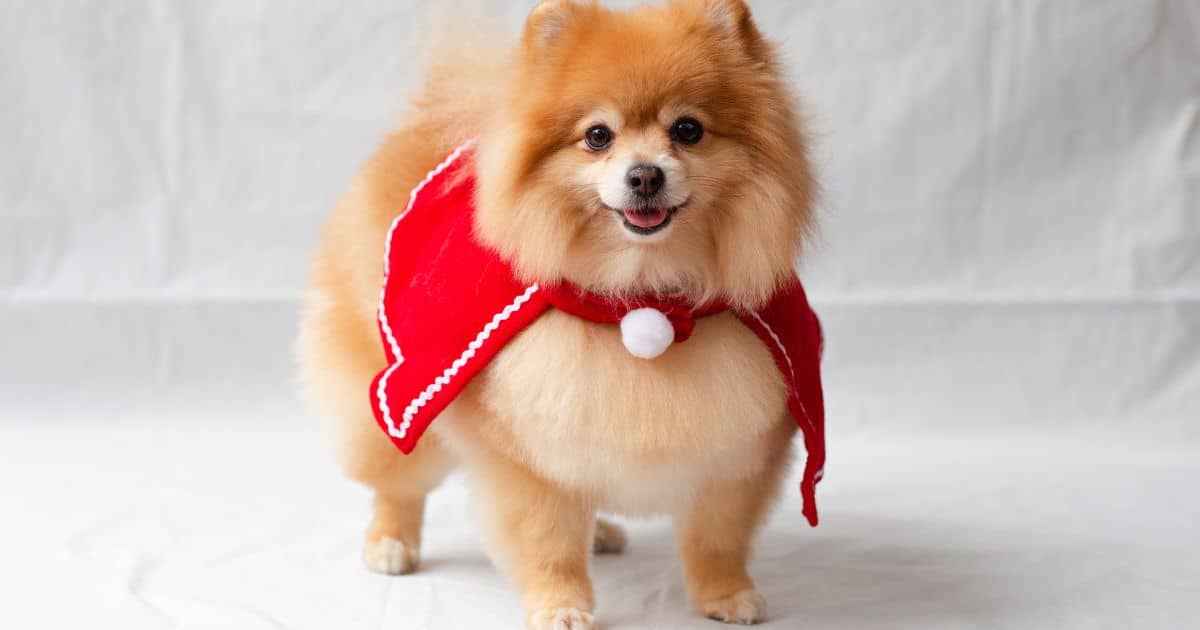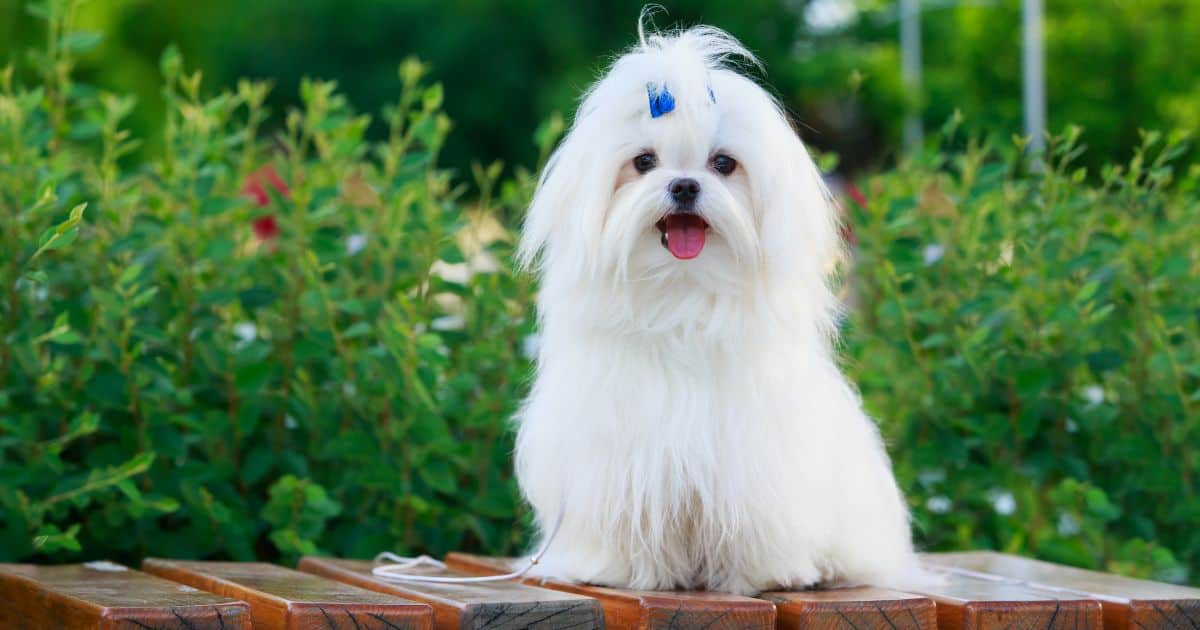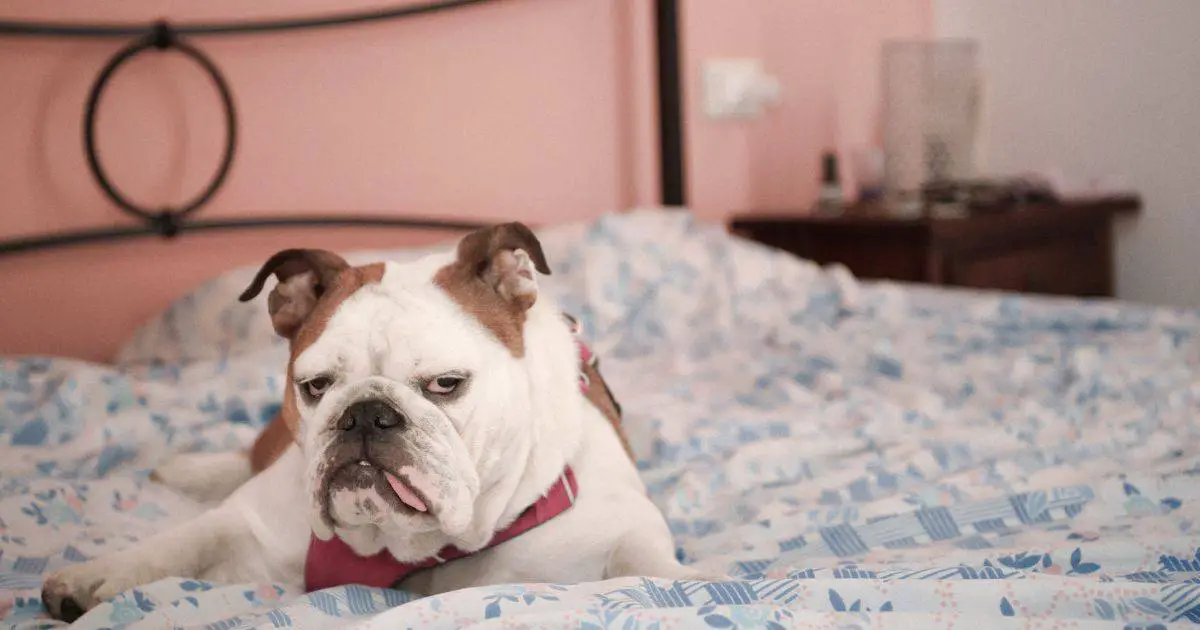Table of Contents
If you’re considering adding a furry friend to your family, the Bichon Frise might be just the right choice. This small breed, known for its fluffy white coat and cheerful demeanor, has gained popularity among families due to its affectionate nature and adaptability to various living situations. With their playful and friendly temperament, Bichon Frises are known to bring smiles to the faces of their owners.
Before deciding on whether a Bichon Frise is the right fit for your household, it’s essential to understand their unique qualities and needs. As an owner, you’ll want to consider the breed’s exercise and grooming requirements, as well as their socialization and training needs. Taking these factors into account will help ensure that both you and your Bichon Frise can create a happy and harmonious family environment.
Key Takeaways
- Bichon Frises are affectionate and adaptable, making them a popular choice for families.
- Consider exercise, grooming, and socialization needs when deciding if a Bichon Frise is right for your household.
- Ensuring proper care and understanding their unique qualities leads to a happy family environment with a Bichon Frise.
Understanding Bichon Frise
Origin and History
The Bichon Frise, a small but sturdy breed, originated from the Canary Islands, specifically Tenerife. They were later brought to France, where they became popular pets among the royal class. Despite facing near-extinction during the world wars, Bichon Frise managed to survive and are now beloved members of many families.
Physical Features
Bichon Frises are members of the non-sporting group and are famous for their white, fluffy, curly coat. These dogs generally stand under a foot tall at the shoulder and are characterized by their dark eyes, drop ears, and curly white hair. A distinctive feature of the bichon frise is their plumed tail, often carried jauntily over the back.
When considering if a bichon frise is a good family dog, it’s essential to understand their temperament and characteristics. These dogs are known for being affectionate, loving, and eager to please their owners, making them great family pets. In addition, their size and hypoallergenic coat make them easy to live with, and being part of the non-sporting group, they generally require less daily exercise than other breeds.
So, when it comes to bichon frise temperament and suitability for families, rest assured that they are indeed a wonderful choice for your home.
Personality and Temperament
When considering a Bichon Frise for your family, it’s essential to look at their personality and temperament. The Bichon Frise is known for being a cheerful and affectionate companion, with a gentle and playful nature. They often attract attention with their cute appearance and irresistibly charming demeanor.
These intelligent dogs can quickly become attached to their human families, and they enjoy spending time with you. Standing at just 9 to 11 inches tall and weighing between 7 to 12 pounds, they are the perfect size for a lap dog, making them great for cuddling and snuggling.
Bichon Frise dogs are generally friendly and sociable, making them excellent companions for both adults and children. Their loving nature fosters close bonds with their families, and providing them with plenty of attention is key to ensuring their happiness. They may show an independent streak, but overall, Bichons are loyal and attuned to their family’s needs.
While these dogs have moderate energy levels, they still require 20-40 minutes of daily exercise to stay healthy and stimulated. Bichon Frises can be content with indoor play or outdoor walks, so it is crucial to provide them with regular activities to keep their minds and bodies active.
It’s worth noting that Bichons can be prone to barking, but this behavior can often be managed with consistent training and socialization. Proper training ensures that your Bichon Frise is well-behaved and adaptable to a variety of environments and situations.
In summary, the Bichon Frise has a temperament that is ideally suited for families seeking a cheerful, affectionate, gentle, and sociable companion. By providing this charming and loyal breed with the attention, exercise, and training they need, you will have a loving and devoted family dog that will brighten your days with their delightful personality.
Are Bichon Frise Good Family Dogs?
Yes, Bichon Frise are excellent family dogs. They are well-known for their playful and affectionate nature, which makes them perfect companions for families with children. Bichon Frise are good with children and have a patience that makes them great playmates for kids of all ages. With their gentle temperament, they can adapt to various situations and enjoy being around people.
Not only are they great with kids, but Bichon Frise are also good with other pets. They usually get along well with other dogs and animals, which is a huge advantage for families who already have pets or are considering adding more to their household.
Additionally, Bichon Frise are great apartment dogs. They don’t require large living spaces and can easily adjust to indoor living. Their small size and minimal exercise needs make them well-suited for apartment dwellers. You won’t need to worry about them feeling cramped or out of place in a smaller home.
Their loving nature makes Bichon Frise perfect lap dogs. They adore being close to their human companions and often enjoy snuggling on the couch or sitting on your lap. This affectionate relationship can provide a lot of comfort and companionship for you and your family.
Overall, the Bichon Frise is a well-rounded, adaptable breed that can easily fit into a variety of family situations. Whether you’re looking for a dog that’s good with kids, other pets, or comfortable living in an apartment, a Bichon Frise might just be the perfect furry addition to your home.
Living Conditions and Exercise Needs
As a Bichon Frise owner, you’ll find that these dogs adapt well to various living conditions. They are well-suited for apartment living thanks to their small size. Their height typically ranges from 9 to 11 inches, and they weigh between 7 and 12 pounds. Bichons are the perfect size to snuggle and sleep beside you.
When it comes to their exercise needs, Bichon Frises are not the most active breed. A daily walk or two will generally suffice, with each walk lasting around 15 minutes. In total, your Bichon Frise should receive between 30-60 minutes of exercise per day to stay fit and happy. While intense exercise isn’t necessary, it is essential to provide them with regular physical activity.
Outdoor playtime is equally important for your Bichon Frise. You can engage them in activities such as running off-leash in a safely fenced area, or indoor games of fetch. These outings not only contribute to their overall fitness, but also offer mental stimulation and social interaction. Keep in mind that some Bichons can be timid, so early socialization is crucial in building their confidence.
Although your Bichon Frise may not require an extensive backyard, it is still beneficial for them to have a small outdoor space where they can trot around and stretch their legs. This allows them to burn off energy and maintain a healthy weight.
In summary, Bichon Frises make excellent companions for various types of living conditions, especially apartments. Ensure they get regular exercise through daily walks, outdoor playtime, and indoor activities to keep them healthy and happy.
Socialization and Training
When it comes to training your Bichon Frise, you’ll find that they are generally easy to train and eager to learn. Early socialization is important for this breed, as it helps them develop confidence and reduces the chances of behavioral issues later in life. Begin by introducing your Bichon to a variety of environments, people, and other animals during their puppyhood in a welcoming and positive manner. This will help them become well-adjusted, friendly, and comfortable around new experiences.
Bichon Frises respond well to positive reinforcement and reward-based training methods. Using treats, praise, and other incentives will make the process enjoyable and effective for both you and your dog. Be patient and consistent with your training, as this breed can sometimes be a little stubborn. However, their intelligence and eagerness to please will make the overall experience a pleasant one.
It is essential to address any behavioral issues as early as possible. Bichon Frises can sometimes develop unwanted habits like barking, digging, or jumping. Tackle these problems by establishing clear boundaries and remaining consistent in your expectations. Reward good behavior and redirect any negative actions into more appropriate outlets.
Crate training is also recommended for Bichon Frises. This not only helps with housetraining but provides a safe and comfortable space for your dog to retreat when they feel overwhelmed. Make sure to invest in a crate with the right size and proper bedding, and gradually introduce your Bichon to their new space using positive reinforcement.
In summary, with proper socialization and training, your Bichon Frise will become a well-mannered, confident, and affectionate member of your family. Their intelligence and adaptability make them perfectly suited to a wide range of training methods, and their sociable nature ensures they will enjoy each new experience you share together.
Grooming and Care
As a Bichon Frise owner, it’s essential to pay special attention to your dog’s grooming and care routine. These small dogs have a soft, curly coat that requires regular maintenance to keep it clean, free from mats, and looking their best.
The Bichon Frise has a double coat, with a soft, dense undercoat and a finer, curly outer coat. To prevent matting, brush your dog’s coat at least twice a week using a slicker brush or a comb designed for curly coats. Regular brushing not only keeps your dog’s coat looking good but also helps distribute natural oils, promoting healthier skin and reducing the risk of irritations.
Bichon Frises can be considered high-maintenance when it comes to grooming. To keep their coats in good condition, schedule professional grooming appointments every 4-6 weeks. A groomer will trim and shape your dog’s coat, ensuring it stays manageable and maintains that classic Bichon appearance.
Bathing your Bichon is also an essential part of their care routine. Depending on your dog’s activity level, a bath may be necessary every 3-4 weeks. Use a gentle dog shampoo made for sensitive skin, and be sure to thoroughly rinse all the soap out of your dog’s coat to avoid any irritation.
Feeding your Bichon a high-quality diet is another essential aspect of their care. According to the AKC, it’s crucial to provide your dog with a nutritionally balanced diet to maintain their overall health. Be sure to consult with your veterinarian to determine the appropriate amount and type of food for your dog based on their age, weight, and activity level.
In summary, taking proper care of your Bichon Frise’s grooming and dietary needs will ensure they remain healthy, happy, and looking their best. With a consistent care routine, you can enjoy the unique charm of these fluffy, affectionate companions.
Health and Lifespan
The Bichon Frise is known for its relatively long lifespan, with an average of 14 years. Some Bichons have the potential to live even longer with proper care and healthy ancestors. However, it’s important to be aware of the potential health problems that can affect this breed.
One of the most common health issues in Bichons is diabetes mellitus, a condition that affects the pancreas and its ability to regulate blood sugar. Regular vet visits and monitoring of your dog’s blood sugar levels can help in managing this condition.
Bichons are also prone to eye problems, such as corneal dystrophy and cataracts. You should monitor any changes in your dog’s eyesight and consult with a veterinarian if you notice any issues.
Dental problems, including dental disease, can also affect Bichons. It’s essential to maintain good oral hygiene for your furry friend, which includes regular brushing, a healthy diet, and dental check-ups.
In terms of being hypoallergenic, Bichons are a great option for those with allergies, as they have low-shedding, curly fur that tends not to provoke allergic reactions. However, remember that no dog breed is entirely hypoallergenic, and individual sensitivities may vary.
When it comes to ear infections, it’s crucial to keep your Bichon Frise’s ears clean and dry, as their floppy ears can trap moisture, leading to infections. Regular cleaning can help prevent these issues.
Occasionally, Bichon Frises may develop bladder stones. To reduce the risk, ensure your Bichon consumes an appropriate diet and has access to fresh water at all times.
In conclusion, while Bichon Frise has the potential for a long and healthy life, being aware of and addressing potential health problems is key. As always, maintaining a close relationship with your veterinarian will help ensure the best possible care for your furry friend.
Adoption and Buying Guide
When looking to bring a Bichon Frise into your family, the first decision to make is whether to adopt from an animal shelter or buy from a reputable breeder. There are benefits to both options that can help you find the perfect family pet.
Adopting a Bichon Frise from an animal shelter is a rewarding experience as it gives these lovable dogs a second chance at a happy life. In addition, adoption fees are typically much lower than buying from a breeder. Websites like PetCurious and Adopt-a-Pet are great resources for finding Bichon Frises in need of homes. Keep in mind that adoptable dogs may come with an unknown history which could bring unexpected challenges.
If you decide to buy a Bichon Frise, it’s crucial to find a reputable breeder. This ensures that you are supporting a healthy and ethical breeding environment. The American Kennel Club’s (AKC) Find a breeder program offers a database of reputable breeders to help you in your search. Buying from a reputable breeder often comes with detailed information about the dog’s lineage, health, and temperament, providing you with greater insight into your potential pet’s background.
When visiting potential breeders, be prepared to ask detailed questions about their breeding practices and the health of their dogs. Reputable breeders should be able to provide health certifications and be open to discussing any potential genetic issues within their breeding lines. It’s also a good idea to observe the living conditions and interact with the Bichon’s parents to get a sense of their temperament.
In conclusion, adopting a Bichon Frise from an animal shelter or purchasing from a reputable breeder are both viable options when looking to add a new family member. Weighing the pros and cons, considering your budget and lifestyle will guide you in making the best decision for you and your family.
FAQs
What is the temperament of Bichon Frise dogs?
Bichon Frises are known for their friendly and affectionate nature. They are cheerful, gentle, and adaptable, making them great companions for families, singles, and seniors alike. These dogs love to be around people and are usually very sociable with other pets as well. Due to their joyful personality, they can also be quite entertaining and playful, making them a delightful addition to your household.
How does Bichon Frises interact with children?
Bichon Frises are generally excellent with children, thanks to their patient and gentle demeanor. They can be great playmates for kids, but it’s important to teach your children how to safely interact with the dog to avoid any issues. Also, supervise their interactions, especially with younger children, to ensure the safety of both the child and the dog.
Does Bichon Frise require a lot of grooming?
Yes, Bichon Frises do require significant grooming to maintain their beautiful, curly white coat. Regular brushing is necessary to prevent tangles and matting. It’s also essential to have them groomed professionally every 4 to 6 weeks to ensure their coat stays clean and healthy. Additionally, regular baths, dental care, and nail trims are also needed to keep your Bichon Frise looking and feeling their best.
Are Bichon Frises prone to any specific health issues?
Like any breed, Bichon Frises can be prone to some health issues. These may include allergies, bladder infections, and hip dysplasia, among others. Ensuring your dog receives regular veterinary checkups, a balanced diet, and proper exercise can help minimize the risk of these health issues. It’s also essential to obtain your Bichon Frise from a responsible breeder who conducts health testing on their breeding dogs to help reduce the risk of genetic diseases.
How much exercise does a Bichon Frise need?
Bichon Frises are relatively low-energy dogs, so they don’t require a significant amount of daily exercise. However, they still need regular walks and playtime to maintain their physical and mental well-being. Providing your Bichon Frise with at least 30 minutes of exercise per day will help keep them happy, healthy, and mentally stimulated.
Can Bichon Frises adapt well to apartment living?
Yes, Bichon Frises can adapt well to apartment living, thanks to their small size and adaptable nature. Since they require less exercise than some other breeds, they can be comfortable living in smaller spaces. However, it’s essential to provide them with regular walks, playtime, and mental stimulation to ensure they remain well-adjusted and content in an apartment setting.




Leave a Reply
You must be logged in to post a comment.